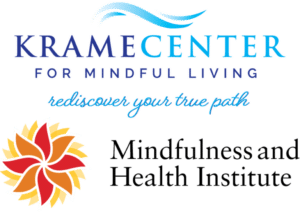If you find yourself routinely feeling anxious, and if it seems that you are always on the brink of falling into a deep abyss of stress and overwhelm, statistics show that you are not alone. Levels of anxiety and depression are at an all-time high in this country, and are continuing to rise at a rapid pace. We seem to be joining the ranks of this unwanted yet popular club in record numbers.
Why am I feeling so much stress?
As if trying to navigate an ever-changing technological world while balancing the demands of work and family was not enough, we have the added economic uncertainty and health concerns that have come with the pandemic of 2020. It is not surprising that this is taking an unprecedented toll on our mental health and overall wellbeing.
How can I increase my resilience?
While we may not be able to control what’s going on around us, the good news is that we can learn to increase our resilience and improve our ability to cope with challenges. The even better news? All we need to do is turn inward and tap into our own internal resources to meet life’s stressors more effectively. We can contribute to our own wellbeing by creating an “internal tool-kit” to become more resilient. Through an increased awareness we can question the accuracy of our own perceptions and invite new perspectives, which enable us to respond thoughtfully rather than reacting habitually, or automatically.
How do I reduce stress?
You may be wondering, “How does one go about increasing their awareness and developing these skills?” Research has shown that one of the most effective ways to reduce stress is through the practice of mindfulness. And then of course, this begs the question “What exactly is mindfulness?”
What is mindfulness?
Very simply put, mindfulness is being in the present moment without wishing it were any different than it already is. Much of our stress comes from resisting what has already happened. The key is to bring a sense of curiosity and observation to our experience, investigating what is really going on outside of the “stories” we tell ourselves. Often our perception is colored by our social conditioning or past events, which can lead to an automatic knee-jerk reaction without any conscious thought. This kind of response activates the “fight or flight” stress physiology we are all too familiar with. How we perceive the moment will determine how we experience the next one – is it one of ease or is it one of stress? When we can remain present and dispense with our inclination to either dwell on the past or worry about the future, we can free our minds of the mental chatter that can generate stress.
These ideas are highlighted in one of the formal definitions of mindfulness as: “The awareness that arises from paying attention in a particular way; on purpose, in the present moment and non-judgmentally.” (Jon Kabat Zinn, 1994) It’s important to take a closer look at this definition and unpack the three components and their meaning. First, “on purpose” suggests an intention to be mindful, being purposeful in how we direct our attention. Second, “in the present moment” is a focus on the unfolding moment-to-moment experience as it is happening now, and not wasting energy replaying a past event or worrying about a future outcome that may never even occur. Third, “non-judgmentally” is the attitude we bring to our practice. Adopting an attitude of curiosity is a kinder alternative to routinely applying labels with harsh judgment to what we experience. What is important to recognize is that the common denominator in all three is awareness. We must cultivate an awareness of what is actually happening in our bodies and minds, and with our thoughts, feelings, and emotions. This begins to shed light on habitual thought patterns that lead to stress.
How is the breath used in managing stress?
Mindfulness practices encourage us to notice the mind wandering to the past, the future, or getting caught up in fantasy. It’s about training the mind. You might be asking yourself, “Training the mind to do what?” The idea is to gently guide our attention back to the “task at hand”, whether the focus of attention is the breath, eating a meal, or sending an email. We use the breath as the focal point of our attention in many mindfulness practices because it is easily accessible and we have it from the time we are born to the time we leave this earth. By continually returning our attention to the breath we become present, we lessen the activity of the mind, and we reduce the incessant mental noise it likes to generate. Through these practices we can also begin to observe thoughts as mental events. Rather than holding the content of our thoughts as absolute truths, we develop a more impartial stance and become a witness to our experience. Changing our relationship to the thoughts we have benefits us with greater clarity and a spaciousness of mind in which we can see what is actually happening, making room for new possibilities, new perspectives, and creative solutions.
We can’t minimize the epic levels of stress that may come with so much uncertainty during these tumultuous times, so it may seem unrealistic and completely foreign to adopt a mindfulness practice when many of us are in crisis mode. There’s no denying that developing a mindfulness practice can be a difficult task in the best of times, and having one in place before chaos erupts is certainly ideal, but it is never too late to begin building valuable internal resources to improve our resilience. One of the most proactive steps we can take is simply to allow things to be as they are in each moment because they already are. This does not mean resignation or inaction, it simply means acceptance as the point to move forward from with greater clarity. Resistance to the circumstances we are faced with only creates a build-up of negative energy and clouds our judgment. Similarly, it is imperative to acknowledge the difficult feelings we may have and allow them to move through us. Suppressing emotions only heightens them, blocks our ability to release them, and escalates our levels of stress. As counterintuitive as it may seem, one of the greatest gifts we can give ourselves is to turn toward the difficulties and face them head on. A mindfulness practice can be a powerful aid in this process, and help us approach life in a more balanced way.
What can I do to reduce stress?
If you are experiencing a rising tide of stress and wish to learn more about how to practice mindfulness, consider participating in our 8-Week Mindfulness-Based Stress Reduction program.
What is the Mindfulness-Based Stress Reduction 8-Week Course?
The 8-week Mindfulness-Based Stress Reduction (MBSR) course was designed to help individuals increase life-satisfaction and improve their overall well-being. Evidence-based research has shown that mindfulness is effective at reducing stress, anxiety, and depression while increasing resilience. Participants learn a variety of formal and informal practices including meditation, gentle body movement, and other techniques to incorporate mindfulness into their daily life.
We invite you to participate in one of the most highly researched and widely-accepted mindfulness programs in the world. In doing so, you will learn practical tools that will improve your mental wellbeing and overall health. Begin your journey to a more resilient life and register for our upcoming course.
Register For 8-Week Mindfulness-Based Stress Reduction Course
Learn more about Mindfulness-Based Stress Reduction


